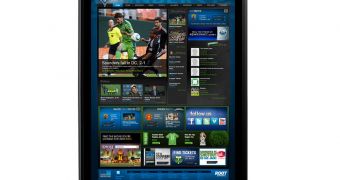This fall, Redmond-based software giant Microsoft will release a new flavor of its mobile operating system, called Windows Phone Mango, which should bring forth a new Internet Explorer flavor, IE9 Mobile, with enhancements aimed both at end-users and developers alike.
IE9 Mobile should move the browsing on Windows Phone closer to the experience that the desktop version of the application can deliver, and also unifies the underlying code base for the two versions of the application.
Some of the main improvements that IE9 would bring to Windows Phone Mango include HTML5 support with hardware accelerated graphics, support for a series of key mobile features, or the principle of “same markup.”
All these would translate into a better experience for end-users, but also in more options for web developers to boost the performance of their sites and applications.
IE9 would arrive in Mango with a brand-new “Chakra” JavaScript engine, enabling Web devs come up with sites that can perform like native applications
“We expect that mobile HTML5 applications are going to build on this foundation and deliver game-like interactivity and movie-quality graphical richness to the user experience,” a post on Windows Phone Developer blog reads.
“We built IE9 to anticipate the rise of these modern, high-performance Web applications by using the phone’s hardware to accelerate all the graphics and text that gets drawn on the screen.”
IE9 in Windows Phone Mango will support many HTML5 features, offering integration with the phone’s volume and playback controls, support for the new semantic markup elements or DOM Local Storage, and more.
The team of developers behind the browser also focused on the principle of “same markup,” through implementing stable and site-ready accepted Web standards inside IE9 Mobile.
It would make it compatible with modern standards such as HTML 4/5, CSS 2/3, and ECMAScript 5, and enable Web developers come up with sites and applications based on them, without having to write code to ensure their products would work on the mobile browser.
“Even in cases where a Web site has not been tuned for the mobile scenario, it will still look and work well on IE9 Mobile, given our increased support for standards and the work we’ve done to provide great rendering experiences for desktop sites on Windows Phone,” the said blog post reads.
But there's more to it, as IE9 in Mango would also come with CSS3 Media Queries support, as well as with support for the phone's GPS receiver for geolocation, and “Metro”-styled controls. Unfortunately, support for Adobe's Flash Player won't be included, it seems.

 14 DAY TRIAL //
14 DAY TRIAL //